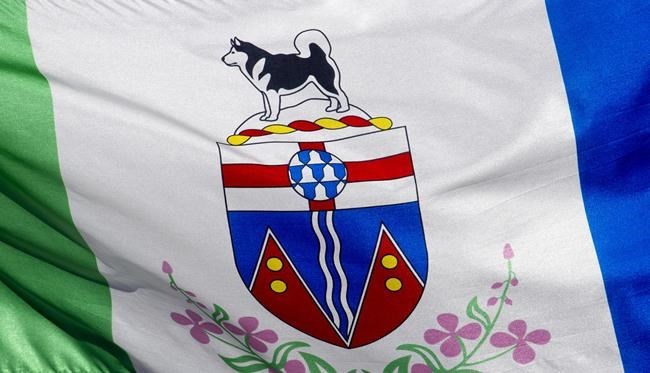CARCROSS, Yukon — Yukon First Nation elder Sandra Johnson says the discovery of 15 potential graves near the site of a former residential school has “uncovered long-buried wounds.”
Johnson spoke Tuesday at the release of an investigation into unmarked graves and the deaths of children who attended the former Chooutla Residential School in Carcross, south of Whitehorse.
Johnson, who is an elder adviser for the Yukon Residential Schools Missing Children working group, acknowledged others around the territory will also be struggling.
“Know that you are loved, valued and cherished. We stand with you in solidarity, committed to walking the path of healing alongside you," she said.
"May the spirit of our ancestors guide us and may the resilience of your communities inspire us all to create a world that is just, inclusive and rooted in compassion.”
The National Centre for Truth and Reconciliation Memorial Register lists 20 children as dying at the school, which operated from 1903 to 1969, but researchers said on Tuesday that their work found at least 33 students who either died at the school, in hospital after being injured at school, or while they were involved in school-related activities.
The discovery is the latest in a series of potential graves found around Canada’s residential schools. On Thursday, the Sto:lo First Nation said it discovered at least 158 deaths at three residential schools and a hospital, dating back to 1863. Most of those deaths were from tuberculosis or other disease.
Brian Whiting, with the B.C.-based company GeoScan, which performed the ground-penetrating radar search, said "more invasive" work would be required to confirm if the sites in question are graves.
He said what they found is consistent with the accounts of school survivors.
Whiting said GeoScan searched more than 37,000 square metres of land and all 15 potential sites were found within 58 square metres of each other.
Nicole Marion, with the research group Know History Inc., says their work began in January of 2022 and included 4,500 archival documents.
She said they've submitted access to information requests for more than 100 files and received partial access to 70.
"Partial access means that we have been provided with a copy of the files that we have requested, but all identifying personal information for students, children and staff have been removed," she said.
Marion said of the 1,300 children taken to the school from Yukon, Alaska and British Columbia, they only know the names of 900 and the home locations for about 730 of them.
She said they have "very poor" information on where the 33 children they identified as dead are buried, and often don't know their names.
"This research is incomplete," she said.
"As we gain further access to records, our findings will evolve. In particular, we hope to learn more about who these children were, what they experienced and where they are buried."
Marion called for continued research, focusing specifically on restricted records held by Library and Archives Canada, the Anglican Church and in the National Centre for Truth and Reconciliation archives.
"It is also of utmost importance and urgency that statement gathering be conducted with survivors," she said.
"Survivors' testimonies will not only inform the research priorities moving forward, but, most importantly, their experiences are the most valuable authority for uncovering the truth about what happened at Chooutla and other institutions of assimilation."
— By Ashley Joannou in Vancouver
This report by The Canadian Press was first published on Sept. 26, 2023.
The Canadian Press
Note to readers: This is a corrected story. A previous version said the name of a research group was Know More.




